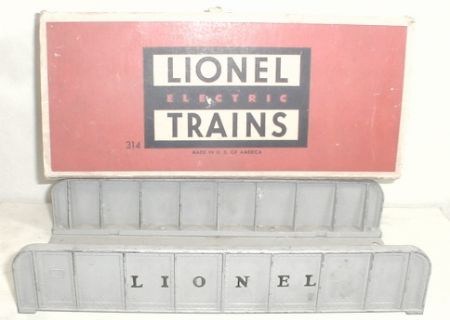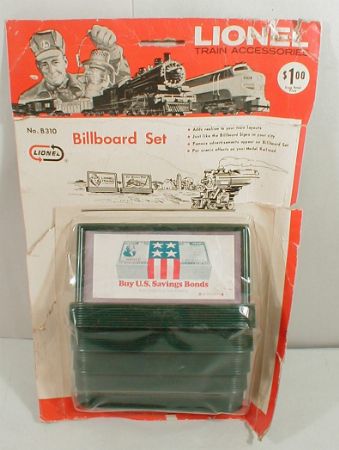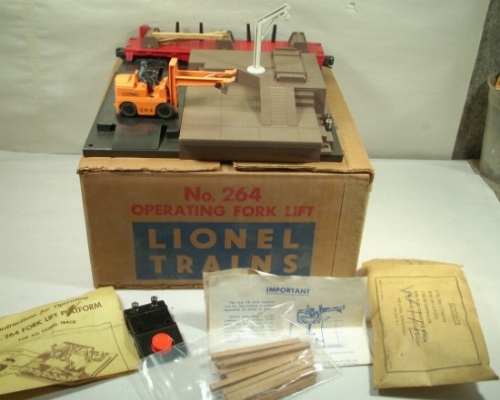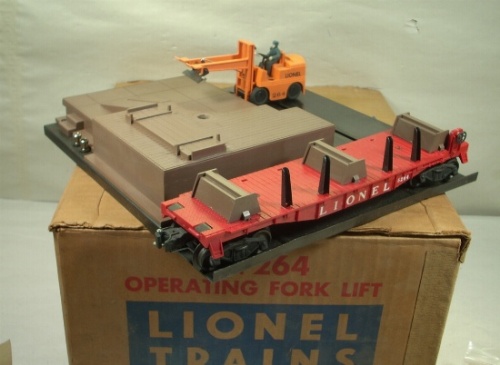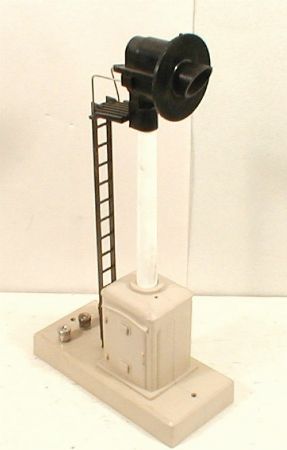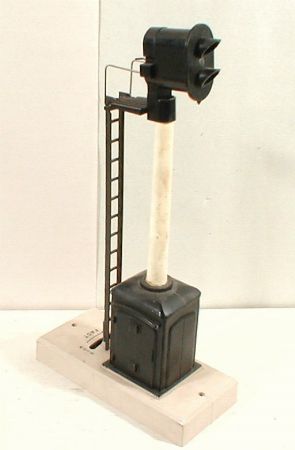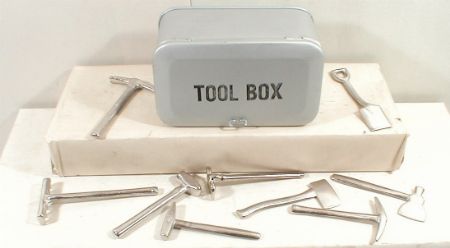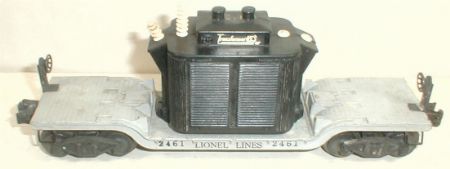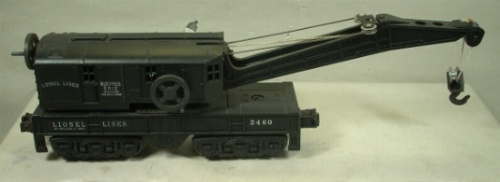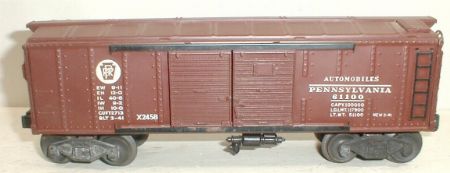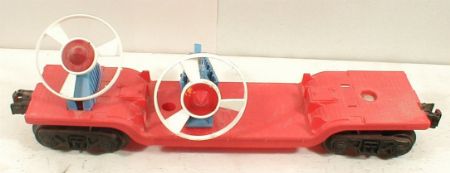
The 3309 is an uncataloged car and doesn’t have a number on it. At least three variations were made. The one shown above is the most common. The car is also found on a darker red flatcar or a drab olive flatcar.
The 3309 turbo missile launching flatcar in red comes with or without the holder for the extra missile shown on the right side of the car above.
All versions of the 3309 flatcar are equally common except the drab olive which is quite rare.
